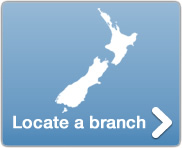Resume Centre
You never get a second chance to make a first impression. A resume is your entry into the job race. It is your chance to sing your own praises and make an employer sit up and take notice. So, it's worth taking some time to perfect it.
Content Your aim is to convince the employer that you have the necessary experience, knowledge and drive to do the job. Many resume's do nothing more than provide a stark list of job titles and duties. All companies are results-orientated, you must emphasise what you have achieved within a role, how you added value or made a difference to a company.
Structure
- Personal Details - start with your personal details (name, address, phone number). List a brief summary of your personal profile such as skills, experience, knowledge and career aspirations. It's the perfect way to give the employer an overview of your suitability for the job.
- Career History - if you have been in employment, focus on your career history first and them move on to your academic qualifications. If you are a school-leaver or still in education, start with details of your education and academic achievements. For each role, list your job title, company name and length of employment. Follow this with a description of your role, key responsibilities and remember to highlight your achievements. For previous jobs keep the details brief, unless they are significant in terms of the role that you are applying for.
- Qualifications & Education - when it comes to qualifications and professional training, take the same approach as with your employment history. Begin with your most recent qualifications. If you have a degree or higher qualification, there's no need to include an extensive list of your results.
- Interests - you should aim to relate your interests to the job selection criteria, for example, demonstrate you are a team player by sharing your involvement in team sports. If you are entering the job market, give evidence to demonstrate initiative or practical skills such as voluntary work, elected office in a society or contributor to a college magazine.
Key Guidelines
- Three pages is an ideal length.
- Use subheadings wherever possible. They assist the reader to locate specific information with ease e.g. Career History.
- Use simple and clear typefaces.
- Keep the language formal with short and crisp sentences. Your personality will become evident during the interview.
- Avoid using jargon and abbreviations. Take great care with spelling and grammar.
- Personal pictures, marital status, date of birth are not necessary. You will be assessed on the talent and experience you bring to the role.
Send us your CV
To send us your CV, please email it to your nearest Manpower branch using
our office locator.
Good Luck!










